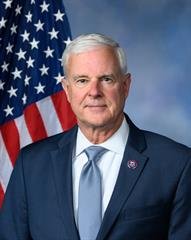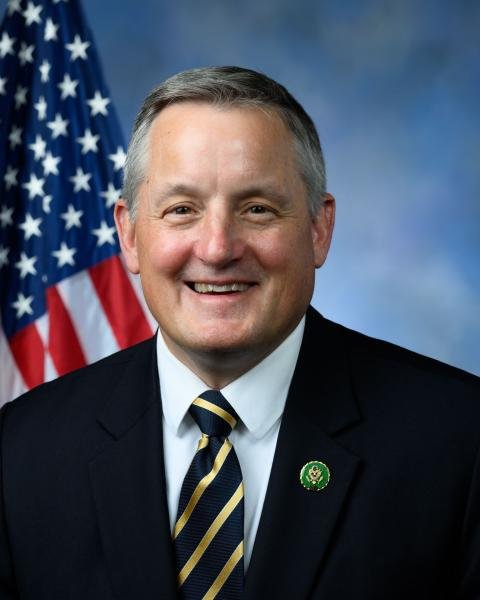WASHINGTON, D.C. - Today, Rep. French Hill (AR-02) issued the following statement after three of his bills passed the House as part of significant, strategic, and critical legislation to support U.S. allies Ukraine, Israel, and Taiwan.
“As our allies in Ukraine, Israel, and Taiwan face threats against their freedom, providing U.S. aid was dire. Russia’s Vladimir Putin will not stop until he takes Ukraine, China’s Xi Jingping seeks to follow Putin’s aggressive and illegal footsteps in his pursuit of Taiwan, and Iran and Iran-backed terror groups are relentless in their attacks against our strongest Middle East ally, Israel.
“It should be brutally obvious that Putin is responsible for the destruction his army has caused in Ukraine and bears the sole burden of paying for Ukraine’s reconstruction. The REPO Act that House Foreign Affairs Committee Chairman Michael McCaul (TX-10) and I authored was a crucial part of our assistance to Ukraine as it allows Russian sovereign assets held in the United States to be converted for Ukraine’s reconstruction – all while saving U.S. taxpayer money.
“Syrian President Bashar al-Assad is a transnational drug kingpin who exploits his dangerous drug captagon to generate billions in illicit funding and devastate families in Syria and in the region. It is crucial that we take further action to disrupt and dismantle the proliferation of captagon as it fuels Assad’s terror partnership with the Iranian regime and before it makes its way west to American shores. My bill, the Illicit Captagon Trafficking Suppression Act, does exactly that by directly targeting and sanctioning those involved with the proliferation of captagon.
“Iran is the top state sponsor of terrorism and profits from their alliances with other terror regimes in the region, and the citizens of Iran deserve transparency about their corrupt, authoritarian leaders. While most of the population lives in poverty, Iranian leaders are focused on funding terrorism and enriching themselves. My bill, the Holding Iranian Leaders Accountable Act, exposes the finances of Iran’s theocratic leaders and cracks down on the financial institutions that facilitate Iran’s terror.
“I am pleased that Speaker Johnson and House Leadership secured the important passage of my bills and crucial supplemental aid to our allies today – the world was watching, and we delivered.”
Further Background:
H.R. 8038 - 21st Century Peace through Strength Act: This legislation includes three of Rep. Hill’s bills:
H.R. 4175 - Rebuilding Economic Prosperity and Opportunity for Ukrainians (REPO) Act: This legislation would utilize Russian assets to pay for the Ukrainian current financing gap and long-term reconstruction by giving the U.S. President the authority to seize, transfer, or vest Russian assets within U.S. jurisdiction into an international fund for the sole purpose of Ukraine’s eventual reconstruction.
H.R. 6245 - Holding Iranian Leaders Accountable Act: This legislation would expose the finances of Iran’s authoritarian and theocratic leaders and crack down on financial institutions that maintain accounts in connection with those funds.
H.R. 4681 - Illicit Captagon Trafficking Suppression Act: This legislation would issue new, direct sanctions against the perpetrators who illicitly produce and traffic captagon.
H.R.8035 - Ukraine Security Supplemental Appropriations Act: This bill would provide $60.8 billion in aid to Ukraine for defense purposes. $48.3 billion (79%) of this total will fund the U.S. defense industrial base.
H.R.8034 - Israel Security Supplemental Appropriations Act: This bill would provide $26.38 billion to support Israel as it defends itself Iran and Iran-backed terror groups such as Hamas. It also would reimburse U.S. military operations in response to the recent attacks.
H.R.8036 - Indo-Pacific Security Supplemental Appropriations Act: This bill would provide $8.12 billion to assist Taiwan as they continue their efforts to counter the Chinese Communist Party and ensure strong deterrence in the Indo-Pacific.





















